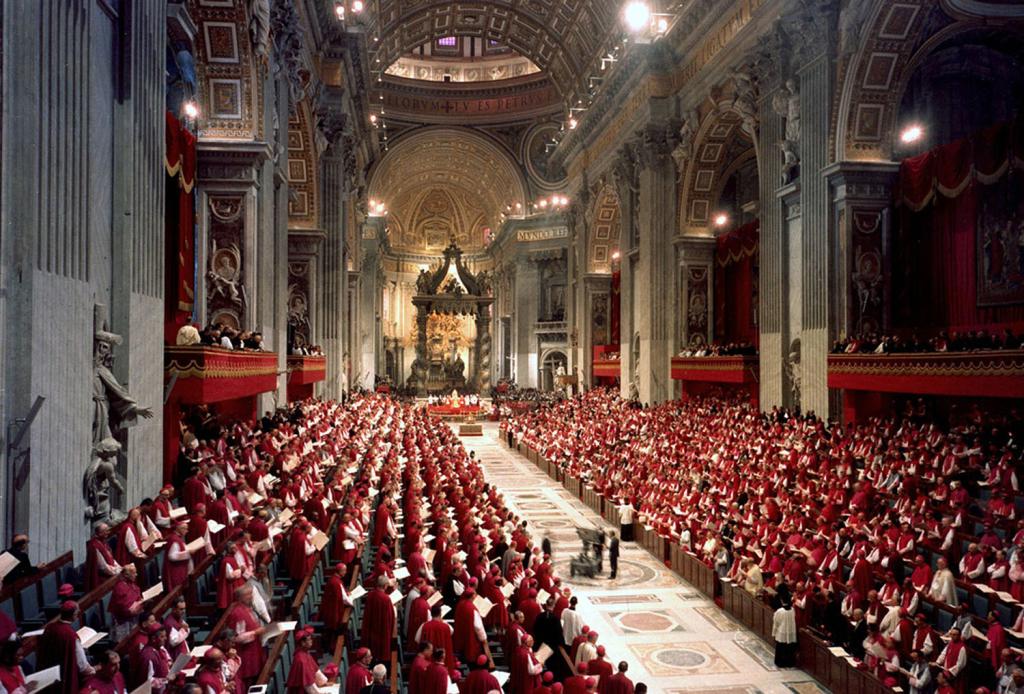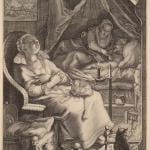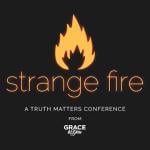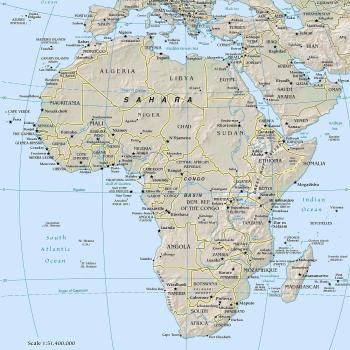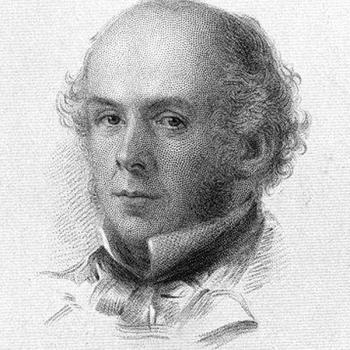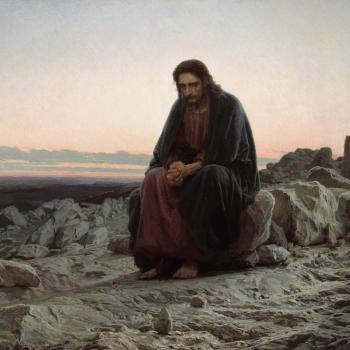Before too long, we are very likely to be dealing with the choice of a new Pope, when Francis either leaves this world, or else resigns. Yes, I know I am addressing an audience of experts in such matters, all of whom have seen Conclave at least once. Even so, I hope I have something of value to add in terms of the current candidates, and the future outlook for the Vatican in general.
And I will confidently predict the name of the next Pope! (Yes, I am kidding).
Last time, I talked about the papacy of Francis I and suggested that the last few years have been a time of some chaos in the church, over and above the perennial divisions between liberals and conservatives, between the very different worlds of Global Christianity North and South. It’s by no means only conservatives who want to see a major shakeup. Francis, meanwhile, has been highly active in trying to ensure that his successor is a solid liberal, and he has been furiously engaged in packing the College of Cardinals. How will this all play out?
The Cardinals
To begin, who are the cardinals who will make the crucial choices? Presently, there are 252 cardinals, but only the 138 who are below the age of eighty have voting rights: these are the cardinal electors.
The massive change in the church over the past half century has been the rise of very large communities of Catholics in the Global South, and the relative decline in Europe and the West. The College of Cardinals has made major moves to reflect that transformation, but it is not quite there yet. Europe, for instance, is still heavily over-represented. It accounts for 21 percent of the world’s Catholics, but a massive 39 percent of the Cardinal electors.
Taken together, the three Global South continents account for 57 percent of believers, and 43 percent of electors, which is a huge improvement on conditions a generation or so ago. Of those regions, South America has 27 percent of Catholics but only 13 percent of electors. Africa stands only a little more fairly represented, with 19 percent of Catholics, and a similar 13 percent of electors. Asia, oddly, is now over-represented, in having just 11 percent of the world’s Catholics, but 17.5 percent of its electors.
Of the total number of cardinals, Italy has by far the largest number, with 51, but only 17 are electors. As those figures suggest, many of those dignitaries acquired their rank when Italy was still the undisputed center of the church, but things have subsequently changed so dramatically. The other great centers for electors are the US (10), Brazil (7), followed by France, India, and Spain (five each).
Put another way, if we look at the four countries that for centuries constituted the historic European heart of the Catholic church – Italy, France, Germany, Spain – then they still account for thirty electors, a sizable bloc among the larger 138, if nowhere near a majority. Adding Poland and Portugal would take that total to 38. At least in the conclave, European Catholicism is not dead yet.
Candidates
In the past few months, I have seen a bewildering list of likely candidates for the next Pope, from Top Tens to Top Eights and even a Top Twenty, and with remarkably little overlap among the various groupings. Put all the names together, and I have probably seen a very-much-not-short-list approaching twenty names, which is out of hand. Here I will offer my own select listing, bearing in mind that I am all too likely to be proved wrong in the near future.
Rather than just battle through individual names, let me suggest the broad principles guiding selection. I see three main areas of debate and decision.
First, geography
For some years, the church debated the necessity to find a Pope representing the Global South, and if so, a natural candidate suggests himself in the form of Luis Antonio Tagle, of the Philippines. He might be an excellent candidate on many grounds, and presently, the bookmakers love him. Having said that, the papacy of Francis, from Argentina, has defused the Global South issue, at least for a while. The church has, so to speak, already ticked that box.
That perception explains the remarkable number of candidates in recent lists from Europe, and even from Italy, and the lack of too many obvious Africans or Asians. Even so, Ghana’s Peter Turkson has appeared on many lists, as has Guinea’s Robert Sarah as a distant outsider. Similarly for Fridolin Ambongo Besungu, of the Democratic Republic of the Congo. Anyone who knows my own history knows I am as pro-African as anyone, but I have to say that any of these choices would surprise me – sad to say. I would love to be wrong on that one.
On a related note, I do have a certain vested interest in Cardinal Tagle, who impresses me greatly. Also, if he was elected, it would give me a chance to publish a lot of my stuff on the really interesting Philippine religious tradition, Catholic and other!
Second, the grim world situation
This is a big one, and it might be decisive. Obviously, wars and rumors of wars were on the agenda during the previous two elections in 2005 and 2013, but with nothing like the critical and even nightmarish urgency that they are today. That was true even before Donald Trump’s election and the imminent evaporation of NATO. It is very likely indeed that any new Pope would have to deal with a global crisis or at the very least a European one: the cardinals are likely to be electing a war Pope, which is a horrendous thought.
That might very well mean that the choice would fall not on a candidate who could raise the church’s profile in Asia or Africa, but one very familiar with European realities, and moreover, a skilled administrator and diplomat. In 1939, such considerations led to the choice of Vatican Secretary of State Eugenio Pacelli, Pius XII, whom I regard far more highly than do some scholars. The equivalent figure in 2025 would be Pietro Parolin, the current Secretary of State, and a top candidate on most lists. His diplomatic experience is very wide, and he is exceedingly well connected. He is exactly the sort of leader you want to have on hand during, say, a Russian threat to Central Europe.
The biggest strike again Parolin, at least in many people’s eyes, has been the Vatican’s suicidal diplomacy with China. China urgently seeks to Sinicize all churches and religious bodies, and the Vatican has made enormous concessions to Xi Jinping. That includes the Chinese government’s right to nominate bishops, and all this at a time when China is actively persecuting Catholics and other Christians, besides the horrific treatment of the Uighur Muslims. That actual 2018 treaty text (renewed 2024) is still secret, presumably to avoid still larger firestorms than have actually erupted. This is relevant to the succession issue because Parolin was mainly responsible for the whole act of self-harm. Francis, meanwhile, that alleged “lone moral voice” has said little specific about all this, but obviously approves.
Parolin’s other main problem is that he is so obviously the favorite, which in Vatican history is a near-surefire way of not being elected. “The cardinal who enters the conclave as a Pope leaves as a cardinal.”
Besides Parolin, there are several dark horses, such as Pierbattista Pizzaballa, who is (believe it or not) the Latin Patriarch of Jerusalem, and is deeply involved in Middle Eastern affairs.
Third, progress and reaction
As I remarked last time, American media tend to regard all Catholic affairs in terms of sexuality, with a neat divide between heroes and villains – those who favor reforms on church views of gender, sexuality, and celibacy, and those who don’t. Francis very much stood in the progressive wing here and he worked hard to pack the College of Cardinals accordingly. Hs choices comprise 110 of the 138 cardinal electors. If in fact that made the choice lean to a liberal progressive, then the obvious people would be Tagle, or Matteo Zuppi, who is totally in the Francis mode. So is Portugal’s José Tolentino de Mendonça.
Having said that, we are clearly moving into more conservative times, in the US as in Europe, and that might push the balance to a conservative figure. Adding to this pressure has been the anger with the toxic craziness of Francis’s last few years, not to mention the sense that the church globally is growing in areas with a very strong traditionalist bent, above all in Africa. That is where we find the vocations, not in Europe or North America. That consideration need not point to an African pope, rather than a conservative European.
Conservative figures usually cited include the very traditionalist American Raymond Leo Burke or Hungary’s Peter Erdö. Realistically, I can’t see an American being chosen any time soon. The Hungarian might be seen as a useful conduit to Moscow.
In less stressed times, the progress versus reaction point would be decisive, but that would not be the case if we really are living in 1939 Part Deux. Electors would be looking for a whole different range of experiences and skill sets.
Could I be missing someone altogether? Of course. But I think those three principles are going to guide the selection, whoever the ultimate successor proves to be.
If the choice was made today, which it won’t be, then the choice would very likely lie between Tagle and Parolin. But things will change, and fast.
A POSTSCRIPT
I am adding a PS here. A commenter on the original post asked a very sensible question, namely:
“To the best of my knowledge, of all the popes chosen since 1958 only Paul VI and Benedict XVI were the front runners before they were elected, all of the others have been dark horses.”
I promptly wrote an answer, but for no apparent reason, it has been held up in moderation, and Lord knows when it will appear. Here is what I wrote:
“So that is two out of 6, but I would suggest that is an underestimate. So much about who is and is not a dark horse depends on available sources, which in this context often means rumor and leaks. One strong and persistent rumor holds that Bergoglio (the later Francis) was de facto offered the job in 2005 but turned it down. At the least, he was certainly runner up in 2005, and was thus no great surprise when he won in 2013. I actually wrote about him as runner up in a book I published in 2011.
Nor, actually, was John XXIII in 1958. They wanted a fill in until they could find a real consensus candidate, and he was readily available, so again no enormous surprise
I would say the only real and absolute dark horse was John Paul II in 1978.”
Correction, I mentioned the “Bergoglio as runner up” point in the second edition of my NEXT CHRISTENDOM published in 2007, not 2011.
If you can figure out what in that comment of mine triggered Patheos’s sensitivity meters, what outburst of obscenity or violent extremism, do let me know. I am not seeing it.
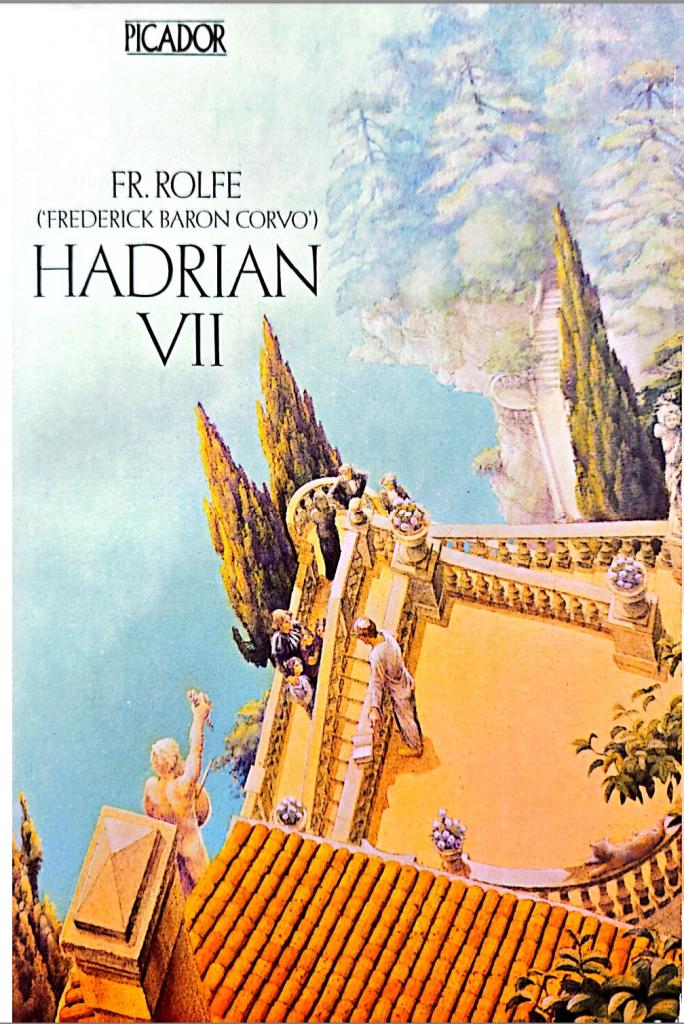
On a totally different matter, the prospect of a papal election gives me an opportunity to rave about an ancient personal literary favorite of mine, namely the 1904 novel Hadrian the Seventh, by Frederick Rolfe, “Baron Corvo.” It used to be a cult favorite, and it shocks me when I find how few people know that book these days. Rolfe was an amazing figure from the Oscar Wilde/Aubrey Beardsley decadent 1890s, who fantasized about being a Catholic priest, and more. (He wasn’t a baron, either). Hadrian the Seventh is his ultimate wish fulfilment, where a thinly disguised Frederick Rolfe happens to be in Rome at the time of an election, and is duly chosen Pope himself. I quote Robert McCrum, from his list of the 100 best novels in English: “His masterpiece, Hadrian the Seventh, is both a book of its epoch – orchidaceous, eccentric and weirdly obsessive, some would say mad – as well as being, in DH Lawrence’s summary, “the book of a man-demon”. Praise indeed, I think (?). Anyway, once read, never forgotten. Orchidaceous, eh? Eat your heart out, Conclave.


